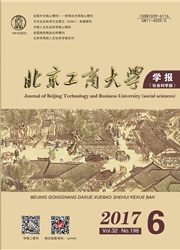

 中文摘要:
中文摘要:
本文探讨了在我国制度环境下研发投入强度对IP0抑价的影响,以及风险投资的参与对二者关系的调节作用。研究发现,与发达市场相同,信息不对称的存在使得我国公司IPO前的研发投入引发更高的IPO抑价,而在我国转轨经济制度环境下,风险投资的投机性参与并没有起到对IP0公司进行认证监督从而减少信息不对称的作用,相反却增加了IP0公司研发投入的信息不对称,最终加剧了研发投入对IP0抑价产生的正向调节作用,且风险投资对研发投入和IP0抑价之间的正向调节作用依存于风险投资的声誉、产权背景和IP0前持股比例。更进一步,风险投资参与对研发投入和IP0抑价关系的正向调节作用及调节作用对声誉、产权背景的依存性在创业板市场上更为显著。
 英文摘要:
英文摘要:
In the influence of capital internationalization and the supporting of domestic policies, China's venture capital market has been witnessed a rapid development these years. Also, with the rap- id change of capital market, IPO underpricing has been the research focus in theory.This paper investigates the relationship between R&D and IPO un- derpricing, and the moderator effect of the participation of Venture Capital (VC) under the current institutional background of China. Furthermore, we consider the effects of VCs' reputation, sharehold- ing and property right on this relationship. We take a sample of 704 companies, which are listed in the small board and GEM from 2009 to 2012. By using a OLS multiple regression model, we find that more R&D intensity induces higher IPO underpricing due to infor- mation asymmetry which is consistent with many other developed and developing countries. However, in China's current transitional economy circumstance, the opportunistic participation of VC in IPO does not certify the value of IPO company and monitor company's behavior, but increase the information asymmetry and intensify the positive relationship between R&D and IPO underpricing. The em- pirical results show that VCs' reputation, shareholding-proportion and property right significantly affect the moderator effect of the participation of VC. Furthermore, lower reputation and non-state- owned VC aggravates the positive relationship between R&D and IPO underoricing, especially in GEM.Based on the above researches, we suggest that the government should establish and improve the information disclosure system of listed companies in the small board and GEM, especially R&D information to reduce information asymmetry between public in- vestors and internal investors. Because less historical financial data and less strict listing standards are needed in and GEM IPO appli- cation, the information disclosure system should be distinguished from the main board. Besides, start-ups should be concerned about the
 同期刊论文项目
同期刊论文项目
 同项目期刊论文
同项目期刊论文
 期刊信息
期刊信息
